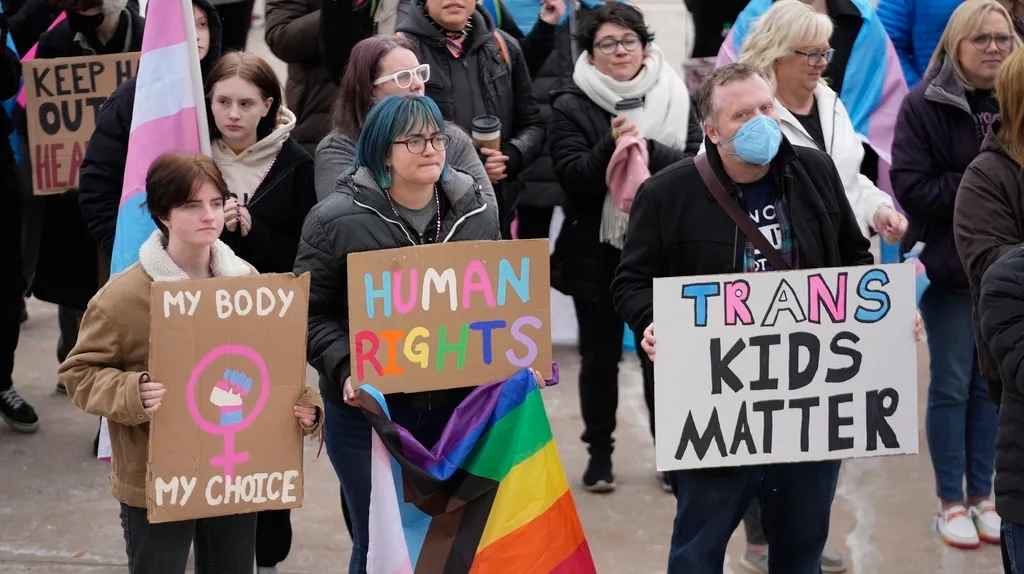January 29, 2014
For Putin, Sochi Olympics Carry Big Risks, Rewards
Jason St. Amand READ TIME: 4 MIN.
or Vladimir Putin, the Winter Olympics he brought to Sochi have always been about far more than sports.
The benefits the Russian president expects from holding the games range from improving Russia's international standing and instilling a sense of national pride to turning around the country's demographic decline. And of course Putin wants to be seen, at home and abroad, as the man who made this all possible.
That's a tall order for an international sports event.
And what if terrorists strike the Olympics, which are taking place Feb. 7-23 just a few hundred miles (kilometers) west of a region where Islamic insurgents carry out bombings and other attacks almost daily? Or if a winter storm rips through the Black Sea resort, knocking out its hastily finished electric grid? Or even if Russian athletes in Sochi repeat their dismal performance of the 2010 Vancouver Winter Games?
If - for one reason or another - Sochi is deemed to be a disaster, the $51 billion spent on Putin's games may suddenly seem like a colossal waste of money. That amount dwarfs the spending of any other Olympics, winter or summer.
"Has Putin over-invested in these games?" Stephen Sestanovich, a Columbia University professor and Russia scholar, asked rhetorically. "Almost surely. And I think the disproportion of the investment will be clearer if the Russians don't bring home a trove of gold medals and if the security situation goes badly."
Putin has made the 2014 Winter Games his personal project from the very beginning, directing an ambitious undertaking to transform Sochi, a once-tacky Soviet-era summer resort, into a world-class winter sports center.
Along the way, the games took on a state propaganda aspect that one of Putin's former advisers says has not been seen since the 1936 Summer Olympics in Berlin, which the Nazis used to promote their concept of racial supremacy.
Andrei Illarionov, Putin's economic adviser from 2000 to 2005, says the Sochi Games have become a celebration of the "cult of strength" for Russia's muscle-flexing leader, a demonstration of his and Russia's physical, intellectual and economic might.
In a recent interview with Russian and foreign TV stations, Putin said the Sochi Olympics should be seen as proof of Russia's economic resurgence during his 14 years in power. He also hoped the games would lead people "to take an unbiased and fresh look" at what he called the new Russia.
"I am sure that this will happen, that it will ... help to build Russia's relations with its partners around the world," he said in the Jan. 19 broadcast.
This may be wishful thinking.
"Foreign governments that deal with Russia are more inclined to take seriously specific policy items on their agenda that they want to be able to advance, and most governments over the past few years have found Russia to be harder to deal with," said Sestanovich, who has held several U.S. government posts and has a book coming out on U.S. foreign policy. "Are they going to find Russia easier to deal with if they've won more gold medals? I'm a little skeptical."
At home, Putin is counting on the Olympics to inspire more young Russians to take up sports, which he said will go a long way toward improving the nation's health and resolving its demographic crisis. The number of births in Russia last year outnumbered the number of deaths for the first time in a decade.
Putin has toned down expectations of a high medal count - although he certainly expects Russia to perform better than it did in Vancouver, when the team won only three gold medals. In the TV interview, he said he wanted Russian athletes to "fight to the end, demonstrate their skills and make their fans happy."
More important, Putin added, is for Russians to see that their country is capable of pulling off such a major event and to regain some of the national pride lost in the years following the 1991 Soviet collapse.
The Sochi Olympics are the first for Russia since the Soviet Union held the Summer Games in 1980, which were boycotted by the United States and dozens of other countries because of the war in Afghanistan.
Putin's Olympic show already has been tainted by the international criticism of Russia's attitude toward gays, illustrated by a new law banning gay "propaganda" among minors. Largely because of the law, a number of Western leaders and officials have decided to stay away from Sochi. Unusually for an Olympics, the United States will not be represented by its president, vice president or first lady.
But the main worry is terrorism. Those fears were heightened by two suicide bombings in late December in the southern city of Volgograd that killed 34 people and injured many more. Islamic militants in Russia's North Caucasus asserted responsibility for those bombings and have threatened to strike Sochi.
A terrorist attack would be a major embarrassment for Russian security services and would diminish Putin's international prestige but probably would not weaken him at home, Sestanovich argues.
"When has terrorism ever been bad for Putin politically?" Sestanovich said. "He has generally been able to make the problem of terrorism a political winner for him. He has used it to rally people, to argue that the Russian state has to be strong, that he in particular needs increased powers."
Russia has put in place sweeping measures to build what it calls a "ring of steel" around Sochi involving tens of thousands of police, army and security officers. But after the Volgograd bombings, international visitors may now be more accepting of the intrusive and time-consuming security checks at Sochi.
Illarionov, now a Putin critic, said his prognosis for Sochi "is that it will be more or less OK."


